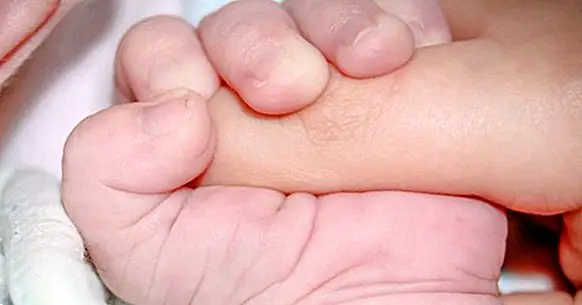Baby blues: sadness after childbirth
There are some women who, after giving birth, enter a state of inexplicable sadness . Irritability, emotional decay, sudden mood swings, tiredness and, in some cases, spontaneous cries appear.
This phenomenon does not have to be always a case of postpartum depression ; it could also be something that is known as baby blues and that, in fact, it is very frequent.
What is the baby blues?
Baby blues is a psychological phenomenon that involves entering a state of sadness It can last between a few hours, a few days and two weeks after delivery. It is considered to be especially frequent in first-time mothers , and its symptoms do not become so intense as to interfere significantly in the chores of the person who has given birth.
That means that although the baby blues is annoying and generates discomfort (or, rather, is the discomfort itself) does not make women unable to carry out their daily tasks and they do not have any autonomy .
The baby blues is, above all, a phenomenon that affects the subjectivity of the person, and that beyond the own discomfort has no clear and obvious objective transmissions. From a clinical point of view, it does not matter much .
In short, the baby blues is not a psychological disorder, but a set of symptoms that are not very intense and, when added together, do not compromise the mental health of the mother.
How does it manifest?
Among the most frequent symptoms of baby blues are these:
- Loss of appetite
- Problems sleeping
- Irritability
- Sensation of discomfort and sadness in general
- Fatigue
- Spontaneous crying whose causes are difficult to determine
The causes of baby blues
What is the appearance of the baby blues? It is not easy to know, but specialists attribute it to the abrupt hormonal changes that occur in the mother after birth. Specifically, the hormones and substances that are involved in these changes are estrogens , the serotonin, progesterone and prolactin .
However, not all causes are isolated within the biology of the mother: the way in which it is affected by the environment also produces important effects . In particular, the need to take care of the baby during the first two weeks produces an important physical and psychological wear that, often, translates into lack of sleep.
In turn, the effects produced by the environment in the body are mixed with the hormonal changes generated by childbirth, and from that neurochemical turmoil baby blues are born.
The mild version of postpartum depression
It is very common to confuse baby blues with postpartum depression, since both phenomena they are related to sadness . But nevertheless, the differences between both phenomena are remarkable . In fact, baby blues is sometimes called postpartum sadness to differentiate it from this other.
Baby blues is a set of symptoms, while postpartum depression is a threat to mental health and it is a reason for psychological and psychiatric clinical treatment that sometimes requires the use of psychotropic drugs. In addition, the former disappears alone, but the latter must be treated by health specialists.
Also, while the baby blues can last a maximum of two weeks and it can only appear during the following days after birth, postpartum depression can last a year and appear at a more advanced stage, weeks after the moment of giving birth.
On the other hand, baby blues is much more frequent, since may occur in up to 80% of cases of birth , while postpartum depression in any of its intensity levels does not exceed 15%.
- Maybe you're interested: "The 6 differences between sadness and depression"
How to deal with the baby blues
To know how to manage the baby blues, it is advisable to follow these simple guidelines:
Understand that it is something hormonal
It is useless to try to rationalize your emotions and your discomfort, blaming others. It is preferable to keep in mind that this discomfort is due to a very common hormonal imbalance, and that it will happen alone.
Find moments to rest
If you can have the opportunity to rest and sleep well Much of the discomfort will go soon.
Follow routines
Do not expose yourself to very chaotic and unpredictable behavior dynamics: follow well-defined habits to make it easier for your hormone levels to regain balance.
Accept the help of others
Having a birth is not easy and the others know it. The baby blues is just one of the many proofs of that.For this reason, it is a good idea to accept the help of those who are in a position to be able to help with tasks.



















